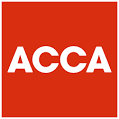1. Set cashflow targets
By preparing and maintaining a cashflow forecast is one way of controlling cashflow. This can be updated weekly to provide an accurate outlook for the next 6 to 12 months.
2. Agree clear payment terms
It is important to establish clear payment terms from the outset. You need to know from the start what your payment terms are, as it’s difficult to know when you will get paid. If you don’t know when a payment is overdue, how will you manage your cashflow?
Standard payment terms are normally 30 days. It is good business to pay within 30 days, as your employees and suppliers need paying within that time too!
3. Invoice quickly
Some factors that influence cashflow are in a business’s own hands, including when to invoice. It is recommended that SMEs invoice clients as soon as the work is completed.
Leaving it 2 weeks after you have completed the work to send your invoice, will delay payment to your account for another 7-14 days. If you issue your invoice by email, the recipient will receive it immediately, plus you have a record of your invoice being sent.
4. Make payments easy for customers
This should be made as easy as possible for your customer; try to avoid being paid by cheque as this will take several days for the funds to clear in your bank account. Online payments are the better option.
5. Offer clients fixed rate payment packages
Periodic payment packages could be offered to ensure good cashflow. For example, if you charge by the hour there is no way of predicting your income from month to month. To overcome this, you could offer a retainer package – you charge a fixed number of hours per month and are billed in advance. Therefore, you are paid upfront rather than in arrears so you can plan your spending and business growth more easily, as well as providing peace of mind.
6. Establishing payment arrangement that minimises debtor days
Every business experiences a gap between invoicing and payment, but there is one way to ensure these remain stable is to establish direct debit as a business norm for collecting receipts. It allows a business to scale without increasing the costs required to collect the debt, while also providing a stable inflow of cash from which all payments can be made from.
7. Use technology to manage cashflow
Cloud Accounting can make it much easier to manage cashflow. This is the biggest time-saver for a business, allowing a company to work more effectively, free up time, and keep a better track of business cashflow.
This type of technology provides the user flexibility to access financial accounts 24/7 from any location via a laptop, tablet or mobile phone, keep up-to-date with your financial situation as well as alleviating the worry and hassle of backing up data.
8. Do not focus on profit, focus on cashflow
It is estimated that 90% of the SMEs do not have a cashflow plan from day one, despite having forecasts of profit margins for years ahead. This is one of the common reasons for early business failure.
If your cashflow is in order, your profit will be in order. Many businesses do not make it past 6 months. They may be profitable business eventually, but they do need good cashflow to survive.
Young businesses should work with reliable, quick-paying clients initially, even if it means smaller clients and slimmer profits margins.
9. Train an employee to monitor your cashflow
Some small businesses, allocate a dedicated person to track the money going in and out, especially keeping a close eye on daily credits and debits to ensure there is always sufficient cash in the bank. At the end of the day, cash really is king.
10. Keep the bank informed
Banks can offer businesses useful services like overdrafts or credit, particularly when they are starting out.
It is crucial to keep the bank informed over any unforeseen outgoings and changes in forecasts, so there are no shocks. Treat your bank with the same respect you would give to your clients, and keep in contact with them on a regular basis.
To find out how Broadwing Accountancy could benefit you and your company, contact Brian Munjanja on 01604 328328, or email your questions to [email protected].






